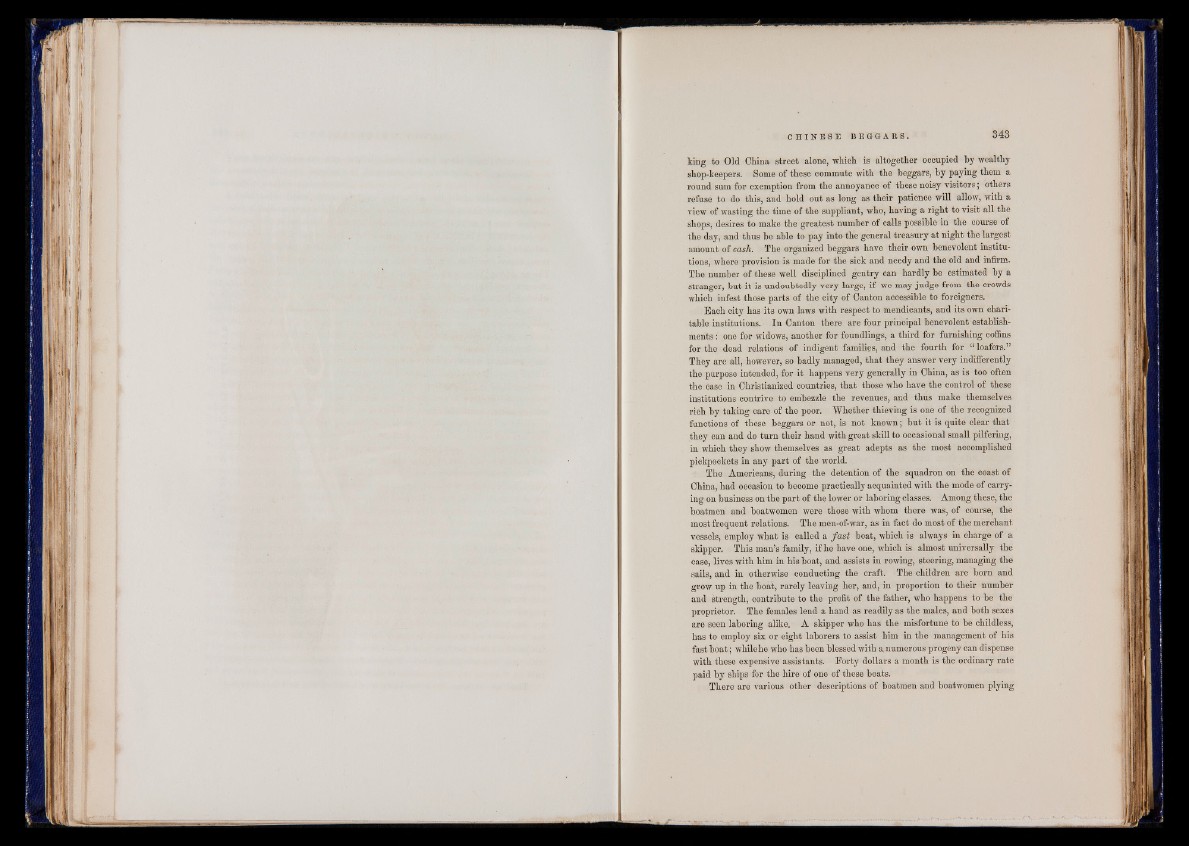
king to Old China street alone, which is altogether occupied hy wealthy
shop-keepers. Some of these commute with the beggars, by paying them a
round sum for exemption from the annoyance of these noisy visitors j others
refuse to do this, and hold out as long as their patience will allow, with a
view of wasting the time of the suppliant, who, having a right to visit all the
shops, desires to make the greatest number of calls possible in the course of
the day, and thus be able to pay into the general treasury at night the largest
amount of cash. The organized beggars have their own benevolent institutions,
where provision is made for the sick and needy and the old and infirm.
The number of these well disciplined gentry can hardly be estimated by a
stranger, but it is undoubtedly very large, if we may judge from the crowds
which infest those parts of the city of Canton accessible to foreigners.
Bach city has its own laws with respect to mendicants, and its own charitable
institutions. In Canton there are four principal benevolent establishments
: one for widows, another for foundlings, a third for furnishing coffins
for the dead relations of indigent families, and the fourth for “ loafers.”
They are all, however, so badly managed, that they answer very indifferently
the purpose intended, for it happens very generally in China, as iB too often
the case in Christianized countries, that those who have the control of these
institutions contrive to embezzle the revenues, and thus make themselves
rich by taking care of the poor. Whether thieving is one of the recognized
functions of these beggars or not, is not known 5 but it is quite clear that
they can and do turn their hand with great skill to occasional small pilfering,
in which they show themselves as great adepts as the most accomplished
pickpockets in any part of the world.
The Americans, during the detention of the squadron on the coast of
China, had occasion to become practically acquainted with the mode of carrying
on business on the part of the lower or laboring classes. Among these, the
boatmen and boatwomen were those with whom there was, of course, the
most frequent relations. The men-of-war, as in fact do most of the merchant
vessels, employ what is called a fa s t boat, which is always in charge of a
skipper. This man’s family, if he have one, which is almost universally the
case, lives with him in his boat, and assists in rowing, steering, managing the
sails, and in otherwise conducting the craft. The children are born and
grow up in the boat, rarely leaving her, and, in proportion to their number
and strength, contribute to the profit of the father, who happens to be the
proprietor. The females lend a hand as readily as the males, and both sexes
are seen laboring alike. A skipper who has the misfortune to be childless,
has to employ six or eight laborers to assist him in the management of his
fast boat; while he who has been blessed with a numerous progeny ean dispense
with these expensive assistants. Forty dollars a month is the ordinary rate
paid by ships for the hire of one of these boats.
There are various other descriptions of boatmen and boatwomen plying